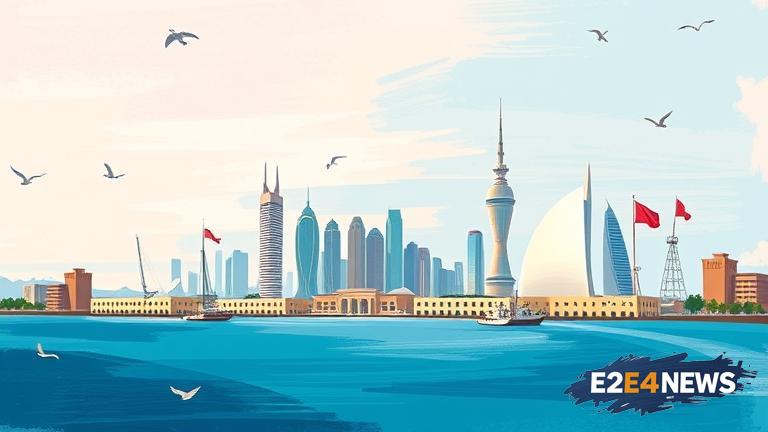Bahrain’s economic diversification efforts have been gaining momentum in recent years, with the kingdom’s non-oil sector driving growth and investment. The country’s strategic location, business-friendly environment, and highly developed infrastructure have made it an attractive destination for investors and businesses. The government’s efforts to diversify the economy have been focused on developing key sectors such as tourism, logistics, and financial services. The tourism sector, in particular, has seen significant growth, with the number of visitors to the kingdom increasing by 11.4% in 2022 compared to the previous year. The growth in tourism has been driven by the development of new attractions and amenities, including the Bahrain International Circuit, the Avenues Mall, and the Water Garden City. The logistics sector has also seen significant investment, with the development of the Bahrain Logistics Zone and the expansion of the Bahrain International Airport. The financial services sector has also been a key area of focus, with the establishment of the Bahrain Financial Harbour and the development of the kingdom’s Islamic banking sector. The government has also been working to develop the kingdom’s small and medium-sized enterprises (SMEs) sector, with the launch of initiatives such as the Bahrain SMEs Development Board. The board aims to provide support and resources to SMEs, including access to funding, training, and mentorship. The government has also been working to develop the kingdom’s human capital, with the launch of initiatives such as the Bahrain National Employment Program. The program aims to provide training and employment opportunities to Bahraini nationals, with a focus on developing skills in key areas such as technology and entrepreneurship. The kingdom’s economic diversification efforts have been recognized internationally, with Bahrain ranking 32nd out of 190 countries in the World Bank’s Ease of Doing Business report. The report highlighted the kingdom’s business-friendly environment, highly developed infrastructure, and streamlined regulatory procedures. The kingdom’s economic growth has also been driven by its highly developed infrastructure, including its transportation network, telecommunications system, and energy sector. The government has been investing heavily in the development of the kingdom’s infrastructure, with the launch of initiatives such as the Bahrain Metro project and the expansion of the Bahrain International Airport. The kingdom’s economic diversification efforts have also been driven by its highly skilled and educated workforce, with a high percentage of the population holding university degrees. The government has been working to develop the kingdom’s education sector, with the launch of initiatives such as the Bahrain Education and Training Quality Authority. The authority aims to improve the quality of education in the kingdom, with a focus on developing skills in key areas such as technology and entrepreneurship. The kingdom’s economic growth has also been driven by its highly developed financial sector, with a range of banking and financial institutions operating in the kingdom. The government has been working to develop the kingdom’s financial sector, with the launch of initiatives such as the Bahrain Financial Harbour and the development of the kingdom’s Islamic banking sector. Overall, Bahrain’s economic diversification efforts are yielding positive results, with the kingdom’s non-oil sector driving growth and investment. The government’s efforts to develop key sectors such as tourism, logistics, and financial services have been successful, and the kingdom’s highly developed infrastructure and highly skilled workforce have made it an attractive destination for investors and businesses.
